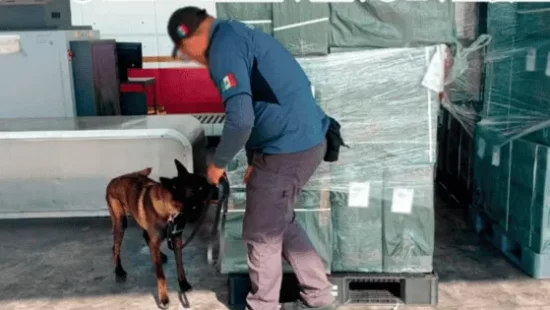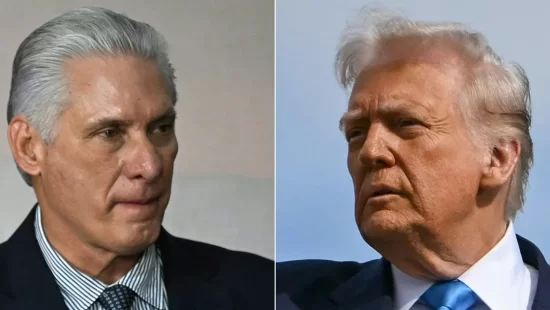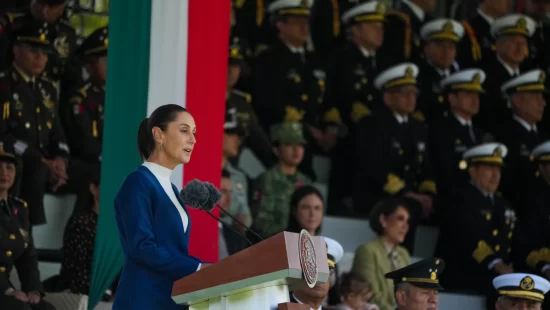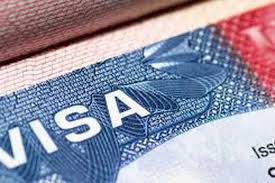Top executives, American families, and drug lords all tied to a covert oil pipeline draining Pemex and defrauding taxpayers in two nations.
Mexico and U.S. authorities uncover a transnational network smuggling Mexican crude and evading billions in taxes through complex fuel fraud schemes.
Mexico and the United States are confronting a sophisticated, cross-border network of fuel smuggling and tax evasion involving multinational corporations, transnational criminal organizations, and complicit customs agents, officials revealed in coordinated announcements this month.
At the heart of the scheme is what Mexico’s Secretary of the Economy, Raquel Buenrostro, describes as “fiscal huachicol” — a growing pattern in which hydrocarbons are disguised as export materials, such as lubricants or oils, to evade taxes and smuggle petroleum products across borders.
“We’re dealing with a well-designed, sophisticated scheme that includes customs agents and senior executives in both Mexican and foreign companies,” said Buenrostro. “This is a long-standing issue of corruption and tax fraud.”
In just the first quarter of 2021, Mexico lost more than 23 billion pesos (approx. $1.4 billion USD) in revenue from the Special Tax on Production and Services (IEPS), VAT, and income tax due to these practices — losses Buenrostro attributes primarily to illegal fuel imports at the Texas-Mexico border.
Across the border, the U.S. Drug Enforcement Administration (DEA) has identified a transnational criminal organization (TCO) actively collaborating with Mexican cartels — including the Jalisco New Generation Cartel (CJNG), Sinaloa Cartel, La Familia Michoacana, and the Gulf Cartel — to steal crude oil from Pemex, Mexico’s state oil company, and traffic it into the U.S. for resale.
Launched under the codename Operation Top Fuel (also referred to as Operation Liquid Death), the U.S. investigation uncovered how criminal groups are not only trafficking drugs, but also engaging in a black-market energy trade with billions of dollars in tax and industry losses on both sides of the border.
“Criminal organizations are tapping directly into Pemex pipelines, purchasing the crude through front companies, and exporting it under false documentation,” said a DEA spokesperson.
According to the U.S. National Drug Threat Assessment (NDTA), this illicit trade has become a major source of cartel financing, while simultaneously undercutting legitimate oil producers and harming bilateral trade.
In September 2024, the U.S. Treasury Department sanctioned nine Mexican nationals and 26 companies linked to fuel theft operations. Among them is Iván Cazarín Molina, alias El Tanque, a CJNG operative overseeing illegal extractions in Jalisco and Veracruz, along with a network of gas companies such as Etanofuel and Energy.
As part of the crackdown, the Jensen family of Utah became the first U.S.-based facilitators charged in this operation. Authorities allege the family smuggled $300 million worth of stolen Mexican crude into the U.S. between 2022 and 2025 by falsely declaring it as lubricants or petroleum distillates.
Through companies like Arroyo Terminals, LLC, Big Hog Energy, LLC, and Jentran, LLC, the family allegedly laundered $47 million on behalf of criminal networks.
All four family members — James, Kelly Anne, Maxwell, and Zachary Jensen — have been arrested and are currently undergoing legal proceedings.
“The crude was acquired solely from companies authorized by Mexican cartels,” stated U.S. prosecutors. “This is a clear case of international money laundering through trade.”
Back in Mexico, Buenrostro emphasized that multinational corporations — including Vitol, a global energy giant already investigated for bribery — are also under scrutiny for manipulating fuel imports and engaging in “technical smuggling.”
“Vitol is just one example. Several other firms are being investigated. We are not targeting foreign investment — we are demanding legal compliance,” Buenrostro stressed.
Mexican authorities, including the Tax Administration Service (SAT) and the Attorney General’s Office (FGR), have opened multiple investigations into the illegal import of refined petroleum products such as gasoline and diesel.
To combat these schemes, the Mexican government is proposing reforms to the Hydrocarbons Law, including tighter import permit controls and expanded use of the Carta Porte digital invoice complement, which tracks the transport of sensitive goods in real time.
“These actions are part of a broader strategy to ensure fair competition, protect public finances, and close off avenues for tax evasion,” said Buenrostro. “The state can no longer afford to be undermined by these blatant abuses.”
The cross-border nature of the “fiscal huachicol” scheme has elevated it from a domestic fraud issue to an international crisis involving organized crime, energy policy, and national security on both sides of the border. As investigations intensify, more companies — and possibly public officials — could be drawn into the widening scandal.








